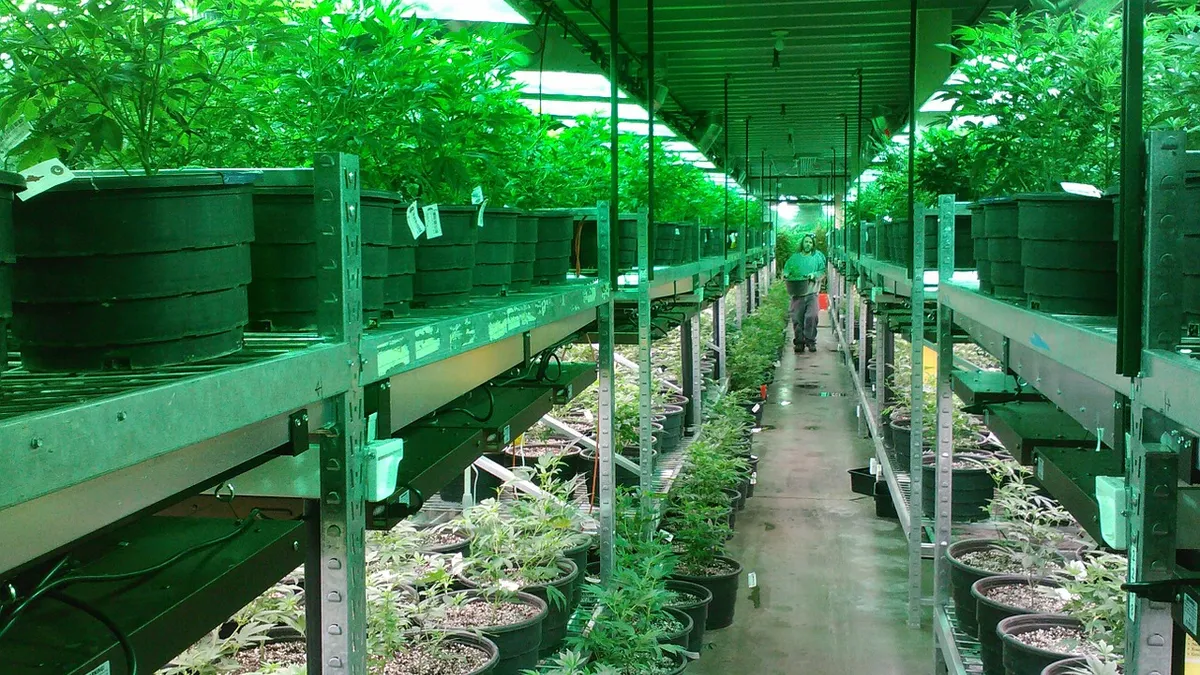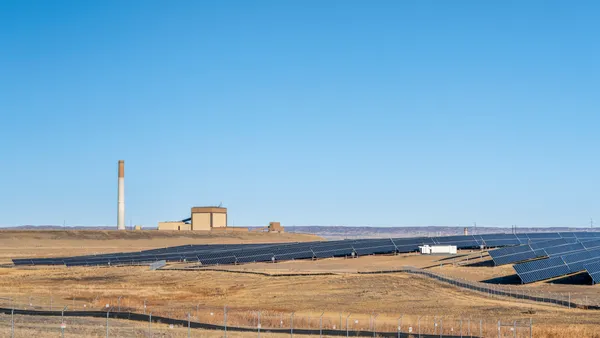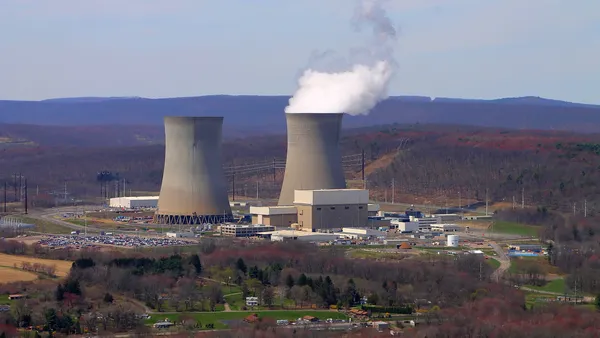Dive Brief:
- Marijuana growing operations are taxing the grid in the Northwest United States, utility Pacific Power says, due to the cultivation houses' high energy demand.
- The Portland, Oregon-based utility said that since pot became legal over the summer, it has experienced seven blackouts attributed to indoor operations overloading local circuits.
- Those responsible for the blackouts face fines of around $5,000, and Pacific Power recommends residents contemplating growing in their home hire a licensed electrician and inform the utility.
Dive Insight
Pacific Power is urging would-be home growers to consult with the utility before starting up their marijuana operations, same as they should any time a customer intends to significantly increase their power load.
"Hire a licensed electrician," he told TV station KTVZ. "You will probably need a dedicated circuit just as you would for a dryer or a hot tub. Don't use extension cords and be careful about generating excess heat in an enclosed space, which is an extreme fire hazard."
Recreational use became legal in Oregon on July 1, and since then, the utility said it has experienced seven outages where grow operations overloaded local equipment. PacificPower said that after an investigation, the utility has billed those responsible an average of $5,000 each for the outsized load which "overburdened and damaged local equipment."
And the issue is not just one Oregon is dealing with. Much of the Pacific Northwest gets its power from the Bonneville Power Administration, a federal agency, which makes the arrangement even more dicey. The Northwest Power and Conservation Council believes regional demand from producers in Idaho, Montana, Oregon and Washington, could reach almost 250 MW by 2035.
This summer, Denver, Colorado, officials said 45% of the city's power growth is coming from the marijuana industry. Regulators are still working through how best to handle marijuana grow operations in states where it is legalized either for recreational or medicinal consumption, and industry experts observe that utilities have taken a "don't ask, don't tell" approach to the new load source in many locations.
Depending on the capacity of transformers and other equipment which supplies a local area, PacificPower said that just one or two in-house grow operations on the same circuit can damage equipment and overtax the local grid.
"Whenever you are contemplating greatly increasing your energy use, you should give us a call," Blank said. "This goes for adding a sauna or some shop equipment. With the law changes, this whole new area is opening up. We just want to urge caution. A grow operation, with intense lights and ventilation, is using electricity around the clock."














